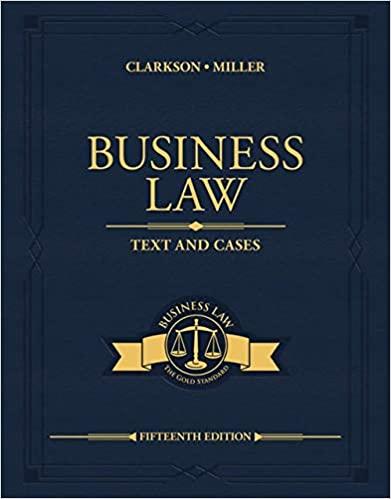Question
Reply to this discussion post: Summary: Police officers were armed with an arrest warrant, but not a search warrant, and were allowed into the petitioner's
Reply to this discussion post:
Summary:
Police officers were armed with an arrest warrant, but not a search warrant, and were allowed into the petitioner's home by his wife. They waited there and served the petitioner as he entered the home. The petitioner denied the law enforcement's requests to look around, yet they conducted a search of the home on the basis of lawful arrest. At the trial, the items seized from the search were admitted over the objection of being unconstitutionally seized. Conviction of burglary was affirmed by the California appellate courts, but held that despite their acceptance of petitioner's contention that the arrest warrant was invalid, since the officers had then performed the warrant in good faith, there was probable cause and the arrest was lawful. The search was also justified due to the valid arrest. It was held then by supreme court justices that "The Court reasoned that searches "incident to arrest" are limited to the area within the immediate control of the suspect." which is unfortunately not what occurred with the petitioner. I honestly find this unsettling that an officer can have "good faith" and then be allowed to search my home. I believe that to some degree, this good faith doctrine violates 4th Amendment rights to a certain degree. I believe that this case educates us on how the good faith doctrine may be used and greatly impacts the public's right to privacy, because how far can good faith truly allow for law enforcement to act?
Step by Step Solution
There are 3 Steps involved in it
Step: 1

Get Instant Access to Expert-Tailored Solutions
See step-by-step solutions with expert insights and AI powered tools for academic success
Step: 2

Step: 3

Ace Your Homework with AI
Get the answers you need in no time with our AI-driven, step-by-step assistance
Get Started


